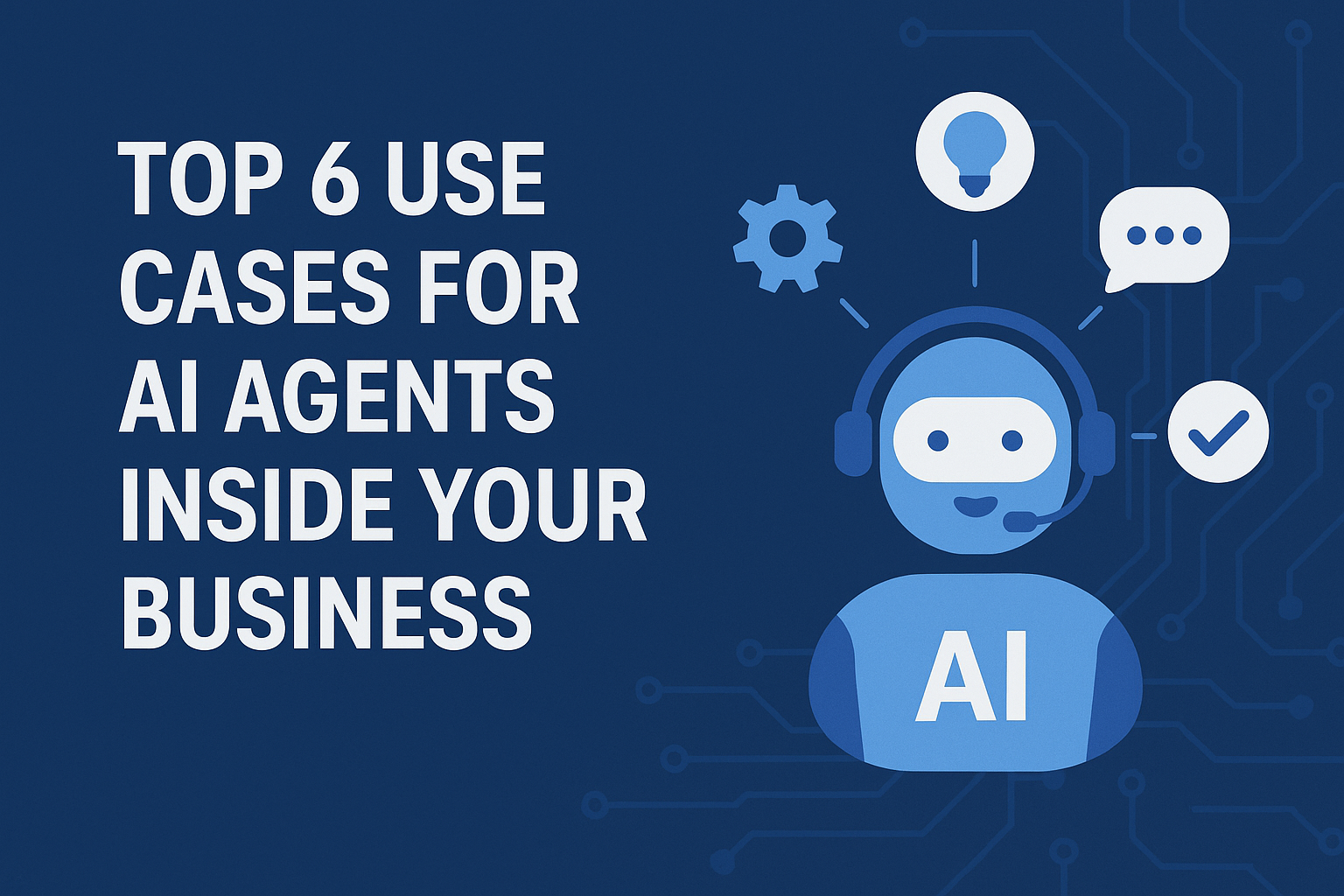Top 6 Use Cases for AI Agents Inside Your Business

AI is no longer just a buzzword — it’s a practical advantage for SMBs that know how to use it.
But here’s the problem: most companies know they should be using AI… they just don’t know where to start.
That’s where AI agents come in.
Unlike traditional automations, AI agents act with autonomy. They don’t just follow scripts — they adapt to workflows, connect tools, and take real action across your business systems. Here are six powerful, real-world use cases that show how AI agents are already making a measurable difference:
1. Inbox Management & Customer Support
Say goodbye to overflowing inboxes.
AI agents can read, categorize, and respond to emails in real time. They flag high-priority issues, route support requests to the right team member, and even draft replies based on past conversations.
For customer support teams, this means faster responses, fewer missed messages, and happier customers — without increasing headcount.
2. CRM Cleanup & Lead Follow-Up
Sales teams often struggle with outdated CRMs and missed follow-ups.
AI agents can keep your CRM fresh by automatically updating contact records, logging interactions, and even sending follow-up emails or LinkedIn messages. The result? No more manual data entry — and no more lost leads.
3. Financial Admin & Accounting Support
Invoicing and payment follow-ups are tedious, error-prone, and time-consuming.
AI agents trained on your accounting workflows can generate invoices, send reminders, and even reconcile payments — all while integrating with tools like QuickBooks, Xero, or Wave. They don’t just automate steps; they reduce friction in your cash flow.
4. Internal Workflow Management
Your project management tools are only as good as how often they’re used.
AI agents can monitor task boards, ping team members for updates, auto-close completed tickets, and surface potential blockers before they derail a sprint. Think of them as a virtual ops assistant keeping everything on track — without micromanaging.
5. Data Entry & App Hopping
Too much business time is spent moving data between apps.
AI agents can handle these integrations seamlessly: taking new entries from a Typeform survey, logging them into your CRM, notifying a team in Slack, and creating a task in Asana — all automatically. That’s end-to-end execution with zero manual steps.
6. Data Analysis & Discovery
Ever wish you could just ask someone a question about your business without having to wait for them to go hunt down the data, put it into a usable format, and then share it with you?
Smart agentic solutions can help with that. You can create agents that connect directly to your data and you can use natural language queries to ask it anything about your business (eg. “What was my revenue growth rates over the last 5 years?” or “Why is revenue lagging behind last year?” or “How often are my top performing products going on promotion?”). The amount of time and effort you can save yourself and your teams is astronomical.
The Bottom Line
These aren’t sci-fi concepts or future bets. This is happening right now.
At Sixth Summit, we’re deploying agentic solutions that save hundreds of hours for clients every month. And the best part? You don’t need to overhaul your entire tech stack, these agents can likely integrate with what you’re already using.